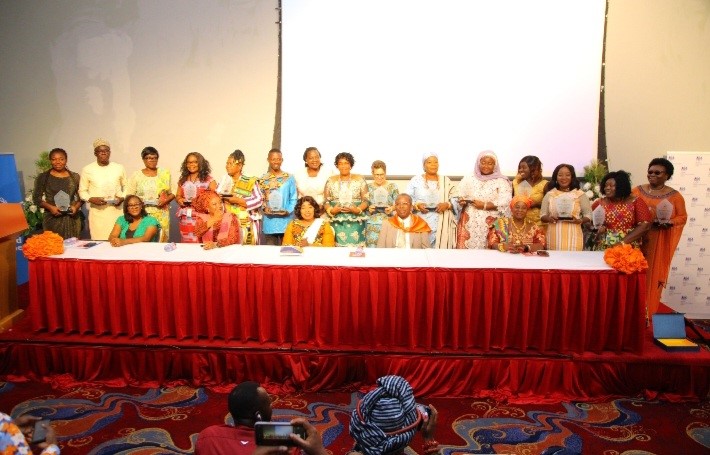Gender Ministry trains over 80 market executives as paralegals
 Over eighty market executives have been trained as paralegals by the Ministry of Gender, Children and Social Protection since the introduction of the concept of paralegals in Ghana.
Over eighty market executives have been trained as paralegals by the Ministry of Gender, Children and Social Protection since the introduction of the concept of paralegals in Ghana.
The market executives were empowered with basic knowledge in the country’s legal frameworks to educate the public on Domestic and Gender-Based Violence (GBV) and to respond better and assist survivors at the markets and communities.
Mrs Zuweira Lariba Abudu, Minster Designate, Gender Ministry, said this at an awards ceremony as part of activities to mark the 16 Days of Activism against Gender-Based Violence.
The 16 Days of Activism against Gender-Based Violence, an annual international campaign begins on 25th November (International Day for the Elimination of Violence against Women) and runs until 10th December (Human Rights Day) to fight violence against women and girls.
The theme for this year’s campaign is: “Unite! Activism to End Violence against Women and Girls.”
The awards ceremony was to recognise and honour individuals and organisations that help in the fight against domestic violence in the country.
Fifteen individuals and organisations from the Northern, Upper West and East, North East, Oti, Savanna, Bono and Bono East, Ahafo, Ashanti, Central, Western, Volta, Eastern and Greater Accra Regions were presented with plagues and table top fridges.
Mrs Abudu noted that the lack of empowering communities to speak and act appropriately against the various abuses that affected women and girls caused the continuous rise in the menace.
She said: “As the saying goes, prevention is better than cure and so, it is important for communities to prevent the abuses before they escalate.”
The Minister Designate noted that GBV acts including Intimate Partner Violence, Female Genital Mutilation, harmful widowhood rites, child and forced marriages with deep cultural and religious roots, affected all countries.
Hence, the Ministry was reviewing its Legal Frameworks such as the Domestic Violence Act and its Legislative Instrument, the National Domestic Violence Policy and the National Gender Policy amongst others to respond better to the abuses.
“Government will not relent in its efforts to provide empowerment opportunities for women and girls as well support all structures working in the areas of prevention, prosecution and rehabilitation of survivors of sexual and gender-based violence.”
Mr Charles Abani, United Nations Resident Coordinator, re-emphasised the need for the Affirmative Action Bill which had been on the table for ten years to be passed. “How will we get this bill passed unless we have more women in parliament in the process,” he stated.
The Bill aims to ensure the achievement of gender equality in political, social, economic and educational status, which is vital to ensuring gender parity, reduction in GBV and reductions in overall poverty levels for Ghana to be self-reliance.
Mr Abani called for a whole community approach to eliminate discrimination and GBV, raising awareness on the situation, uphold international and national commitments, and to conduct advocacy on the protection of rights and empowerment.
He commended the Government and the Ministry for their commitments and continuous efforts towards highlighting the issues as they stood and fought against.
Madam Harriet Thompson, British High Commissioner in a speech read on her behalf by Madam Enyonam Hazumah, Team Lead, Human Resource, British High Commission said, violence was preventable.
Hence, she called for the implementation of legislations that protected women and girls in Ghana.
Madam Thompson said the country could be proud of its achievement on women’s rights and the reduction of gender-based violence.
Source: GNA
